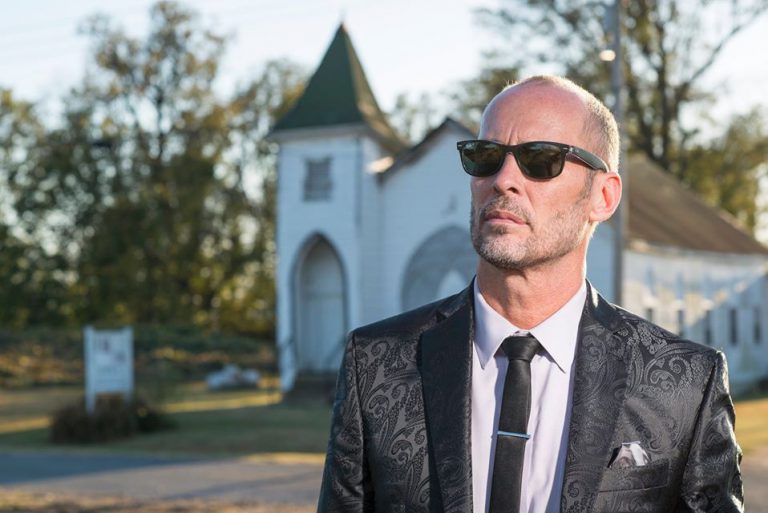
Thirty years ago last month, Tupelo songwriter/singer Paul Thorn climbed into a boxing ring in Atlantic City to fight his childhood idol, Roberto Duran, he of the famed Hands of Stone.
It was a seminal moment for Thorn, one he does not regret – despite all the blood.
“Duran whupped me,” Thorn said before a recent appearance in Meridian. “He whupped me good. He was a better man.”
The fight went six rounds before Thorn’s corner threw in the towel. Both fighters were taken to the hospital for stitches and treatment. They rode together, side by side, in an ambulance.
Inside Thorn’s bloodied head, a light went off. “That showed me I wasn’t going to become a champion,” he said. “I was a good fighter at a certain level. I won at the state and regional levels in Golden Gloves. I had skills but I didn’t have that super skill it takes to be a world champion.”
Thorn fought three more fights, won them all, but he knew – Duran had showed him – he had no real future in the fight game.
So he went back home to Tupelo, went to work in a furniture factory and began writing songs and learning to perform them. The son of a Pentecostal preacher, he had grown up in a house where the devil’s music – rock and roll, rhythm and blues, etc. – was taboo. His music was the gospel music he sang and played in his daddy’s churches, both black and white. As a child, he hid his two rock and roll albums from his parents. Now, the devil’s music was becoming his life.
That life has come full circle recently. Thorn and his band have recorded their first gospel album – “Don’t Let the Devil Ride” – and you can see how it happened in the documentary “Paul Thorn: The Making of …” on Mississippi Public Broadcasting at 8 p.m Monday night, May 7.
This isn’t just any gospel album. Thorn and his band are joined by the Blind Boys of Alabama, the McCrary Sisters, Bonnie Bishop, and the horns section of the Preservation Hall Jazz Band. The album was made at famed Sam Phillips Studios in Memphis, FAME Studios in Muscle Shoals, Ala., and Preservation Hall in New Orleans.
“I always wanted to do a gospel record,” Thorn said. “It’s an homage to my upbringing. Growing up, I sang gospel music and played the tambourine in my daddy’s churches and listened to gospel music at home. Going to church, singing with black people, singing with white people, I learned how to play music. It’s in my heart. It’s my roots and my foundation, and it had to be done.”
Thorn has dedicated the album to his mother and father. Yes, he said, they approve.
Thorn, now 53, has grown a huge fan base around the country, recording 11 albums over the past 21 years. His lyrics often have been compared to those of his musical hero, John Prine.
Of Prine, Thorn says, “He’s the best of the best. He’s a sweetheart. He’s my favorite songwriter. His songs are so powerful. He is so tuned into human feelings. That’s why his fans stay with him for life. He’s the Muhammad Ali of song writing.”
Thorn’s not bad either. You go to one of his concerts and you quickly learn that the audience knows all the words and doesn’t mind singing along. And Thorn, who still looks like he could go six or seven rounds, always regales his fans with stories that relate to his songs.
Recently, he told the story about writing the song “Viagra” with some help from his father, the Pentecostal preacher.
His father, he said, came up with the idea of rhyming Viagra with Niagara.
“My father is a wonderful man of God, but he is not a fully developed song writer like me,” Thorn said, smiling.
In the song, Thorn rhymes the words “failure” and “genitalia.”
“Now, see, that was me,” he said. “Failure and genitalia. That’s song writin’.”
There’s much humor in Thorn’s songs. There’s also no shortage of strippers, desire, lust, sin and salvation. Thorn has lived it all. And lived to write and sing about it.
And, yes, he said, he still loves boxing.
“Watch it every chance I get,” he said. “I love the sport. I wasn’t able to become a champion, but I fully understand the skill and courage that it takes.”
This article first appeared on Mississippi Today and is republished here under a Creative Commons license.
- Rising optimism among small and middle market business leaders suggests growth for Jackson - February 24, 2026
- Jackson City Council confirms mayor’s pick of RaShall Brackney as new police chief - February 24, 2026
- Hinds County supervisors bemoan demands on purse strings as public defenders seek better pay - February 24, 2026